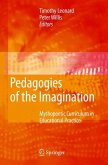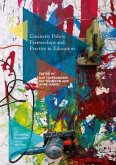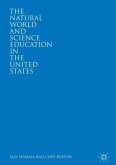This book explores the impact of the socio-historical, political, and economic environment in South Africa, both during and after Apartheid. During this time, the South African education system demonstrated an interest in a specific type of knowledge, which Koopman refers to as 'a science of government'. This 'science of government' leaves the learners with a blurred understanding of science that is disconnected from external nature and human nature, and is presented as a series of abstract concepts and definitions. The book also investigates the dialectical tensions between the science curriculum and the role of the teacher as an active implementer of the curriculum. The book draws on the work of various phenomenological scholars, namely Edmund Husserl, Martin Heidegger, Merleau-Ponty, and Max van Manen to discuss these tensions.
Bitte wählen Sie Ihr Anliegen aus.
Rechnungen
Retourenschein anfordern
Bestellstatus
Storno








